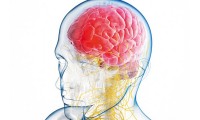-
Cognoa’s AI platform for autism diagnosis gets first FDA stamp
- Source: Techcrunch
- 600
- February 27, 2018
-
Breakthrough status for Roche’s autism drug
- Source: pharmatimes
- 621
- February 5, 2018
-
Neurotech International bags $4M to commercialise autism device
- Source: proactiveinvestors
- 668
- October 18, 2017
-
The hearing aid industry has a huge gap
- Source: drugdu
- 55
- October 31, 2024
-
EMBO J | Jie Yunli team reveals heterogeneity mechanism of glial cells
- Source: drugdu
- 97
- September 24, 2024
-
Use of Popular Pain Reliever During Pregnancy Not Linked to Neuro Disorders in Kids
- Source: drugdu
- 115
- April 23, 2024
-
Study Advances Blood Tests for Psychiatric and Neurological Disorders
- Source: drugdu
- 140
- February 19, 2024
-
Stalicla secures funds for late-stage assets amid CNS buzz
- Source: drugdu
- 102
- February 8, 2024
-
Jaguar Gene Therapy investors carve out manufacturing unit as a separate company
- Source: drugdu
- 107
- January 19, 2024
your submission has already been received.
OK
Subscribe
Please enter a valid Email address!
Submit
The most relevant industry news & insight will be sent to you every two weeks.













